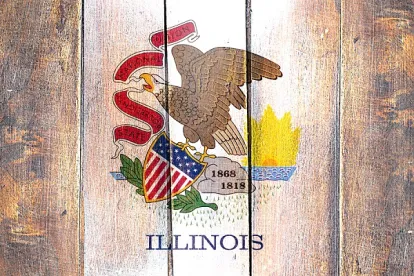In Illinois, the collateral source rule bars defendants from submitting evidence that plaintiffs received compensation for their injuries from a collateral source. For example, if a plaintiff is injured in a car accident due to someone else’s negligent actions, often the plaintiff’s insurance company will cover part of the plaintiff’s medical expenses even before the plaintiff files a lawsuit against the tortfeasor. In that example, the defense is prohibited from submitting evidence regarding that compensation. The purpose of this rule is to prevent defendants from reducing or eliminating the amount of damages they are liable for. On May 21, 2020, the Illinois Supreme Court defined the outer limits of this rule in Mary Lewis, et al. v. Lead Industries Association, et al. (Atlantic Richfield Company, et al.),[1] holding that plaintiffs cannot use the collateral source rule to establish the injury element of a cause of action. The Lewis plaintiffs argued that the cost of the lead testing, which had been covered entirely by Medicaid, should be recoverable pursuant to the collateral source rule. The Court was unconvinced and ruled that pure economic loss claims in which a plaintiff cannot establish actual out-of-pocket expenses will fail and the collateral source rule will not provide the necessary support to overcome that hurdle in Illinois.
Factual Background and Procedural History[2] in Lewis
In Lewis, the plaintiffs alleged that the defendant paint manufacturers became aware of the hazards of lead-based paints in the 1920s, and that the defendants implemented and carried out a plan to conceal and mislead the public regarding those hazards.[3] The plaintiff class brought an economic loss claim for the costs they incurred for state-mandated lead testing services for their minor children, even though none of those minor children suffered any physical injury from lead poisoning.[4]
In May 2020, after 19 years of litigation, the Illinois Supreme Court remanded the case with instructions that the circuit court dismiss the plaintiffs’ last remaining cause of action on the basis that the plaintiffs failed to plead and prove an actual injury.[5]
The Lewis Plaintiffs Suffered No Actual Injury
The plaintiffs’ claim for civil conspiracy was grounded in intentional misrepresentation.[6] The defendants argued that the plaintiffs could not prove one essential element of the conspiracy claim: that their children suffered an injury caused by an unlawful overt act.[7] The underlying claim for intentional misrepresentation similarly requires a plaintiff to establish “damage[s].”[8]
Plaintiffs’ economic injury claim based on the costs of state-mandated lead testing for their children falls within the Moorman exception to the general bar outlined in the Illinois economic loss doctrine because the claim alleges intentional misrepresentation. The issue, however, was whether the collateral source rule would help the plaintiffs maintain this cause of action where they did not incur any actual out-of-pocket expenses for the lead testing because those expenses were fully covered by Medicaid.[9]
The Collateral Source Rule Cannot Satisfy the Injury Element of a Cause of Action
The plaintiffs argued that they should be allowed to recover the Medicaid benefits covering the lead testing pursuant to the collateral source rule, which states that “‘benefits received by the injured party from a source wholly independent of, and collateral to, the tortfeasor will not diminish damages otherwise recoverable from the tortfeasor.’”[10] The Illinois Supreme Court disagreed with the plaintiffs’ rationale, holding instead that while “the rule prescribes a methodology of awarding damages … [it] does not prescribe rules for determining whether plaintiff has suffered an injury.”[11] The court noted that the Lewis case was fundamentally different from collateral source jurisprudence because the plaintiffs could not establish an actionable injury as a threshold matter.
This ruling makes it clear that the collateral source rule does not apply in pure economic-loss tort cases where the plaintiff has suffered no physical injury, out-of-pocket loss, or other similar damages.[12]
While this was the first time the Illinois Supreme Court affirmatively rejected the collateral source rule being used to establish an injury, this decision is consistent with the standard evidentiary application of the rule in Illinois barring defendants from offering evidence of a plaintiff’s collateral source compensation. Furthermore, the Lewis court noted that other jurisdictions including Missouri and Washington have similarly rejected plaintiffs’ efforts to use the collateral source rule to establish an injury.[13]
[1] Lewis v. Lead Indus. Ass’n (Atlantic Richfield Co., et al.), 2020 IL 124107, 2020 WL 2562929 (May 21, 2020).
[2] In April 2017, the Circuit Court of Cook County granted summary judgment for defendant manufacturers dismissing the case in its entirety. The appellate court partially reversed that judgment and reinstated the plaintiffs’ sixth cause of action for civil conspiracy to recover the reasonable value of the lead testing services for their minor children. Lewis v. Lead Indus. Ass’n, Inc., 2018 IL App (1st) 172894, ¶ 13, 126 N.E.3d 1241, 1244, appeal allowed sub nom. Lewis v. Atl. Richfield Co., 116 N.E.3d 935 (Ill. 2019), and rev’d sub nom. Lewis v. Lead Indus. Ass’n, 2020 IL 124107, 2020 WL 2562929 (May 21, 2020).
[3] Lewis v. Lead Indus. Ass’n (Atlantic Richfield Co., et al.), 2020 IL 124107, 2020 WL 2562929, at *4 (May 21, 2020).
[4] Id. at *1.
[5] Id. at *4.
[6] Id. at *6.
[7] Id. at *4.
[8] Id.
[9] Id. at *5 (citing the intentional misrepresentation exception to the Moorman doctrine).
[10] Id. at *9 (quoting Wills v. Foster, 229 Ill. 2d 393, 399 (2008) (quoting Arthur v. Catour, 216 Ill. 2d 72, 78 (2005))).
[11] Id.
[12] Id. at *10.
[13] Id. (citing Roberts v. BJC Health Sys., 391 S.W.3d 433 (Mo. 2013); Gillespie v. Travelscape LLC, No. C13-0622 RSM, 2014 WL 4243706 (W.D. Wash. Aug. 26, 2014)).




 />i
/>i

